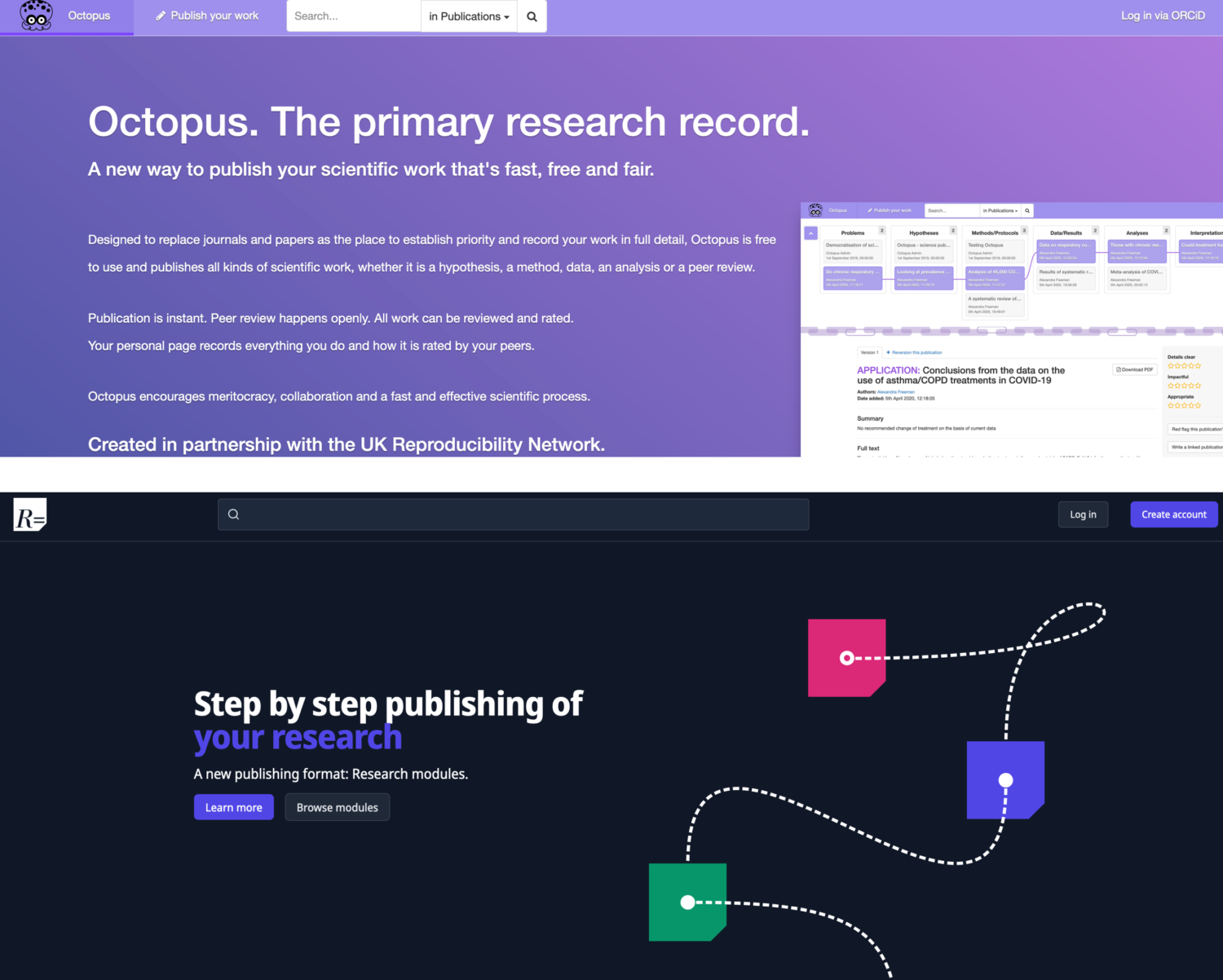Open Research in Conversation: Two Approaches (Octopus and ResearchEquals) to Micropublications
Octopus and ResearchEquals (formerly Hypergraph) are two projects which have much in common, and which followed a similar timeline from initiation to launch.
Back in 2020, the founders of the two concepts posted an online conversation discussing their inspirations and visions for the future of their projects.
Alex: Well, Chris, it’s quite funny reading back over our previous conversation and remembering being at the stage where we were both launching our first working prototypes. Now we’ve both been through a busy couple of years, and have new versions launched or about to launch (I always seem to be just a few months behind you!). Hypergraph has been rebranded as ResearchEquals, and undergone a metamorphosis. Can you explain what has changed in your vision? Is it just a name change or have you also made changes to how you see the platform working, and how it fits with the landscape of research publishing?
Chris: We do tend to be separated by only a few months! We published the ideas resulting in ResearchEquals in early 2018 – you publicly announced Octopus in late 2018. Now we relaunched in February and your launch is coming up next month – I’m excited to see what you’ve got in store! Originally, we started our name change because of potential trademark issues and the fact that we were entering a new phase for the project. Hypergraph was our pilot project – and taught us a lot – ResearchEquals is the project where we went back to the drawing board with those lessons. The vision itself hasn’t changed – the primary difference is in the execution of it. Which leads me to ask:
Chris: How has your journey changed in the past two years as you’ve been able to grow the project with an injection of resources from a UKRI grant? What are you most excited about for this next step in the journey – your official launch?
Alex: Octopus itself hasn’t really changed since the first night I wrote it all down in a rush. There are tricky details, like how to visualise the links between publications, and the best criteria to define what ‘good’ looks like for each publication type, but I think rather than Octopus itself changing, what has evolved is how I see Octopus changing the research culture and publication landscape.
When I first conceived of Octopus, I admit that I saw it as a replacement for journals, but then I came to see that there are (at least) two kinds of publication needed:
- We need one kind of publication which records everything that has been done in full detail, which acts as the research record – a place where priority is established, and where researchers can learn from and build on each other’s work. This is what Octopus sets out to do – to be the detailed record of what a researcher did and thought, at a point in time.
- But we also need publications which concentrate on dissemination. These focus on sharing important findings with people who might want to use them, and less on other parts of the research cycle such as detailed methods, full data, analytical code and methods etc. Journals are well-placed to do this best and I can see journals changing now that they can really focus on the dissemination of findings and leaving Octopus to deal with recording the full detail.
Two years on, we asked Alex and Chris to share another conversation about where the projects are now, and the similarities and differences between the platforms.
Read the Complete Conversation (about 1680 words)
Direct to Octopus Publishing Website
Direct to ResearchEquals Website & Liberate Science Website
Filed under: Data Files, Funding, News, Publishing
About Gary Price
Gary Price (gprice@gmail.com) is a librarian, writer, consultant, and frequent conference speaker based in the Washington D.C. metro area. He earned his MLIS degree from Wayne State University in Detroit. Price has won several awards including the SLA Innovations in Technology Award and Alumnus of the Year from the Wayne St. University Library and Information Science Program. From 2006-2009 he was Director of Online Information Services at Ask.com.



